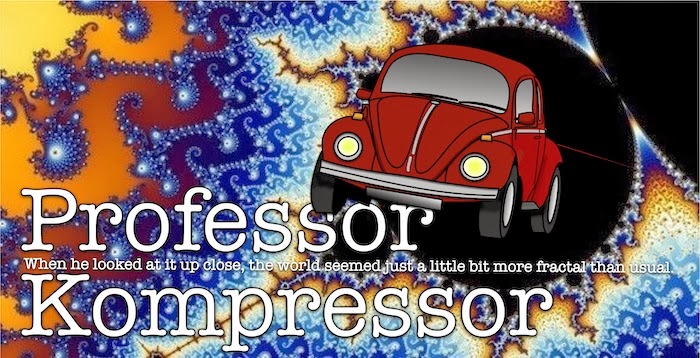It is interesting to see (actually not interesting, rather
annoying) how the fashion for TV reality shows is spilling over into every-day
life. Maybe you don’t agree, but I have had my fill of people desperate to have
their talents voted on by more or less competent judges. I don’t really need
this in my everyday existence, although… perhaps it would be fun to give family
and/or work colleagues score cards to hold up at appropriate times when I have
either excelled or failed miserably.
Anyway,
having sometimes joked about what it will be like when this fad hits science, I
was absolutely astonished when this actually happened a couple of weeks ago.
You may have seen the story already, but let me recap nevertheless.
Apparently, a person that left
academia a long time ago (appropriately for the story with a name very close to
Einstein…) has been toiling away on his solution to the big problem of life,
the Universe and everything. We obviously all know already that the answer must
be 42, but now… after 20 years this individual seems to have found the
question. More specifically, and less flippantly, he claims to have come up
with a geometric theory that joins the standard model of particle physics to
gravity. Or something like that, who
knows? The reason no one really knows is that the detailed work has not been
written up yet.
This would not be a problem, if
it weren’t for the fact that a rather astonishing publicity machine appears to
have tripped into action. A bold write-up in a British newspaper suggested that
the work is the best contribution to our understanding of things since… indeed… Einstein completed his decade-long
toil on his theory of gravity almost a century ago. A talk was given at a
leading University, although it was immediately suggested that the only local
experts that could judge the claims were conveniently not invited. Ah well…
What I find most intriguing with
this story is the apparent disregard shown for the scientific process.
Basically, the scientific principle (at least as I understand it) says that any
work should testable by experiment (in some speculative areas we may have
ventured a bit far for this, but…). Add to this the expectation that your work
must be presented to the community before you have what one might call bragging
rights. This is the idea of peer review (not at all perfect, but it is the best
we have at the moment), where colleagues take a closer look at your work and
then decide if it is any good or not.
You may argue that peer review
brings personal bias into the game (absolutely true) and that some experts may
not be prepared to take anything too “far out” seriously (also true). Still,
this is the way things are done (or at least, have been until now).
While we are waiting for the
actual paper that will tell us how geometry saves everything and resolves a
hundred years worth of questions… let us consider where we appear to be going.
We seem to be heading at full tilt towards judging the quality of science by
the media attention gained and the personalities involved. Should we be
comfortable with this? Really? Do we want our to see best scientists flaunting
shiny smiles and sharing their cleverness on TV chat shows, or do we want them
locked away in the lab solving problems? Once popularity determines research
funding then this is where we will end up. I’m not sure I like the idea. I get
enough of my colleagues at work, thank you very much, I don’t need to see them on
TV as well.

No comments:
Post a Comment